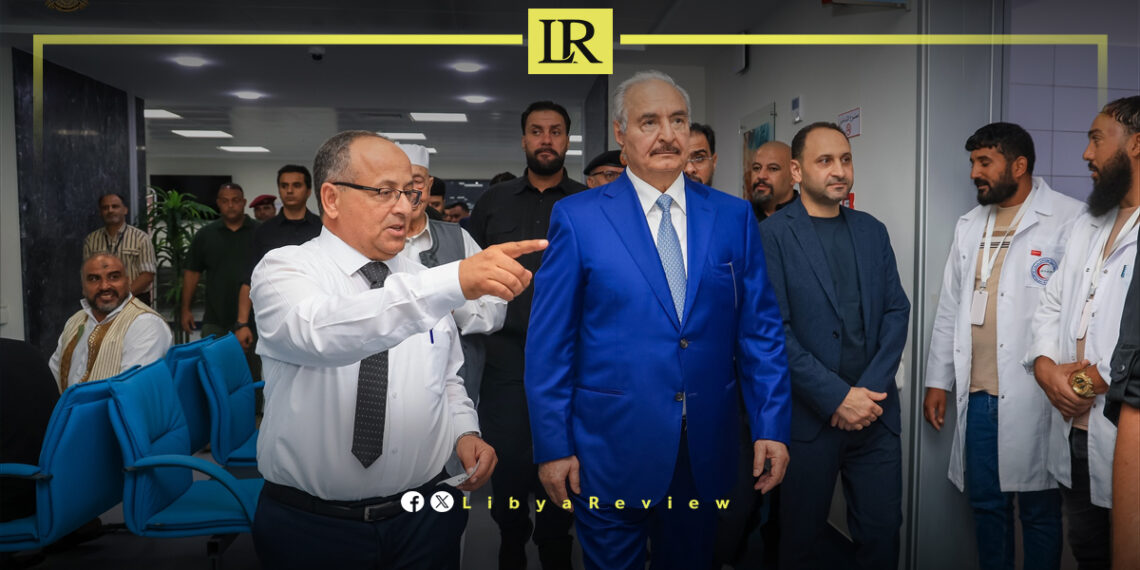The Commander-in-Chief of the Libyan National Army (LNA) Marshal Khalifa Haftar conducted a field inspection in the city of Derna to assess ongoing reconstruction efforts.
He was accompanied by Speaker of the Libyan House of Representatives Ageela Saleh, Prime Minister of the Libyan Government-designate Osama Hammad, and the General Director of the Libyan Development and Reconstruction Fund, Eng. Belqasim Haftar.
The visit included a tour of key sites under reconstruction, such as Al-Hareesh Hospital, bridge construction projects, and the renowned Al-Sahaba Mosque, one of the most significant mosques in Derna and the Green Mountain region.
The primary purpose of the tour was to monitor the progress of construction and renovation work and to review the latest developments in the city’s ongoing rehabilitation. These efforts are part of the larger national initiative to rebuild and upgrade Derna’s infrastructure after recent damage.
Additionally, Prime Minister Hammad, along with Eng. Belqasim Haftar and Head of the Reconstruction and Stabilization Committee Hatem Al-Areebi, visited various ongoing projects in Derna, including the city’s integrated clinics, public housing complexes, and service and health facilities.
Hammad praised the efforts of the Reconstruction Fund of Derna and the affected areas, commending the teams for achieving high completion rates in record time across Derna and other cities in the Green Mountain region. He emphasized that the government is fully committed to fulfilling its role by utilizing all available resources to meet citizens’ essential needs.
Libya has been in chaos since a NATO-backed uprising toppled longtime leader Muammar Gaddafi in 2011. The county has for years been split between rival administrations.
Libya’s economy, heavily reliant on oil, has suffered due to the ongoing conflict. The instability has led to fluctuations in oil production and prices, impacting the global oil market and Libya’s economy.
The conflict has led to a significant humanitarian crisis in Libya, with thousands of people killed, and many more displaced. Migrants and refugees using Libya as a transit point to Europe have also faced dire conditions.
The planned elections for December 2021 were delayed due to disagreements over election laws and the eligibility of certain candidates. This delay has raised concerns about the feasibility of a peaceful political transition.
Despite the ceasefire, security remains a significant concern with sporadic fighting and the presence of mercenaries and foreign fighters. The unification of the military and the removal of foreign forces are crucial challenges.


